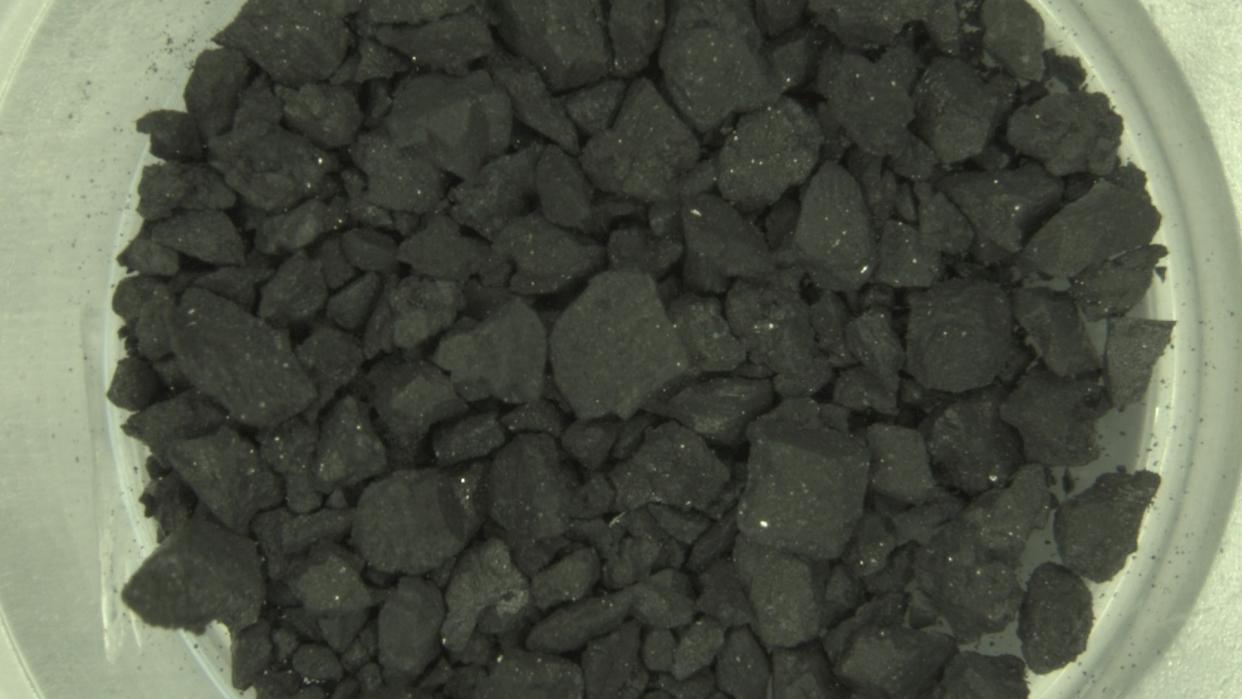Asteroid Ryugu is rich in organic molecules that can be building blocks of life

The asteroid Ryugu is rich in organic molecules that could serve as the building blocks of life. The discovery was made when scientists took a first look at a sample collected by the Hayabusa2 spacecraft from the asteroid.
The Ryugu sample contains several so-called "prebiotic organics" including several types of amino acids that are used by living things to build proteins essential for regulating chemical reactions and forming structures like hair and muscles. These molecules can also be created by various non-living processes, such as chemical reactions that can take place in asteroids.
The findings add more credibility to the theory that the basic ingredients needed to kickstart the development of life on Earth could have been delivered to the planet in its infancy from space.
Related: Asteroid Ryugu: The twirling space rock visited by Hayabusa2
"The presence of prebiotic molecules on the asteroid surface despite its harsh environment caused by solar heating and ultraviolet irradiation, as well as cosmic-ray irradiation under high-vacuum conditions, suggests that the uppermost surface grains of Ryugu have the potential to protect organic molecules," research lead author and Kyushu University researcher Hiroshi Naraoka, said in a statement. "These molecules can be transported throughout the solar system, potentially dispersing as interplanetary dust particles after being ejected from the uppermost layer of the asteroid by impacts or other causes."
The term "organic molecules" describes a wide range of compounds containing the element carbon coupled with hydrogen, oxygen, nitrogen, sulfur and other atoms and are the building blocks of all forms of life here on Earth.
These compounds can be created by chemical reactions that don't involve living things, meaning that chemical processes within asteroids can create the ingredients for life. The search for these chemical processes that could have led to the emergence of life on Earth is known as "prebiotic chemistry."
Also found in the Ryugu sample were organic prebiotic molecules that form in presence of liquid water, another vital ingredient for life, like aliphatic amines, carboxylic acids, polycyclic aromatic hydrocarbons, and nitrogen-containing heterocyclic compounds.
"So far, the amino acid results from Ryugu are mostly consistent with what has been seen in certain types of carbon-rich (carbonaceous) meteorites that have been exposed to the most water in space," research co-author and NASA Goddard Space Flight Center scientist, Jason Dworkin, said.

Missing thus far from the Ryugu sample are sugars and components of DNA and RNA that have been discovered in other carbon-rich asteroids. The team suspects it is possible these compounds are present in Ryugu but they are below the limits of detection given the small sample mass examined for this research.
The Japan Aerospace Exploration Agency (JAXA) spacecraft Hayabusa2 collected samples from Ryugu, located around 215 million miles (347 million kilometers) from Earth, in February 2019. The samples were then returned to Earth in December 2020, and they were extracted in Japan in 2021.
A tiny amount, 30 milligrams or about 0.001 ounces, of that sample, was then analyzed at by the international soluble organic analysis team at NASA Goddard in the Fall of that year.
This new research represents the first organic analysis of the Ryugu sample that will be studied for many years to come. These future investigations will include comparing the Ryugu sample with samples from the asteroid Bennu collected in 2020.
RELATED STORIES:
— Asteroid Ryugu samples, now on Earth, reveal inner workings of the space rock
— Pristine asteroid Ryugu contains amino acids that are building blocks of life
— Strange bright rocks reveal glimpse of asteroid Ryugu's violent past
"We will do a direct comparison of the samples from Ryugu and the sample from asteroid Bennu when NASA's OSIRIS-REx mission returns it to Earth in 2023," said Dworkin. "OSIRIS-REx is expected to return much more sample mass from Bennu and will provide another important opportunity to look for trace organic building blocks of life in a carbon-rich asteroid."
The team's research is published in the Feb. 24 edition of the journal Science.
Follow us on Twitter @Spacedotcom or on Facebook.

